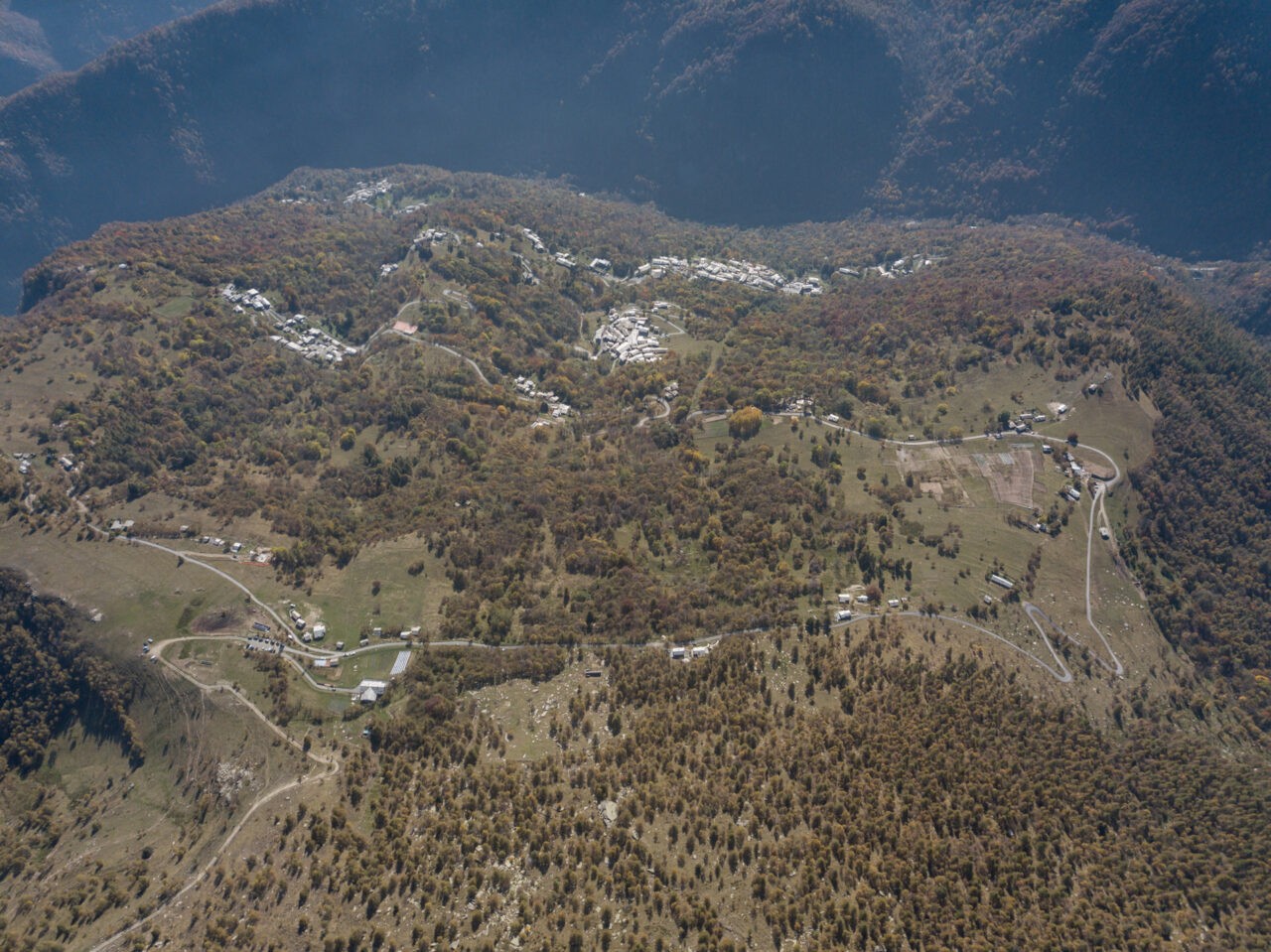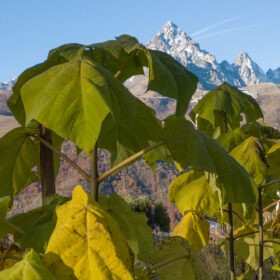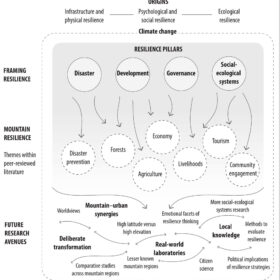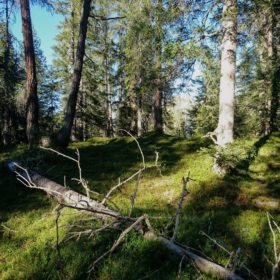
A recently published review paper on mountain resilience identifies origins of the resilience concept with earliest roots in material, infrastructure, and physical resilience. Resilience today is seen beyond shock absorption towards transforming a system for making it stronger, as both more adaptive and more innovative. Several future engagement areas for resilience research, design, and praxis include for example warm data and real-world experimentation.
An active, in social systems even deliberate, intentional capacity for planned change is almost a designerly angle to describe systems of various types for their adaptive, innovative, and transformative capacities. The paper provides a comprehensive overview of the scientific literature in English on resilience-related topics in mountain areas. Most of the social-ecological (SE) resilience discourse holds true for both mountain and other topographies. But mountain livelihoods often experience change the first and the worst, such as climate change, and often suffer from political and economic neglect. The Alpine and the urban are deeply connected; both social-ecological systems are bidirectionally entangled, for transversal resource dependencies including social exchange. Mountain SES may function as kind of sensor, as antenna, for detecting some change impacts early and in their extreme, but generally should not be separated from other SES.
We identify four key pillars of the published resilience discourse: disaster, development, governance, and social-ecological resilience. Seven topics have been clustered from the review: disaster prevention, forests, agriculture, economy, livelihoods, tourism, and community engagement. Based on the paper’s review, the actual resilience discourse today is expanding beyond shock absorption towards transforming a setting or system, such as a social-ecological community, for making it stronger, as both more adaptive and more innovative.
Community Science, Warm Data, Urban-alpine Synergies, and Deliberate Transformation in the Real World as Future Research Paths
As of future engagement in the resilience discourse and for its real-world transformative impact, we propose a structured starting point for science-practice interactions and concrete action-based activities to support livelihoods and strengthen resilience in mountain areas – and as well beyond mountains. We highlight four research avenues for further exploration: deliberate transformation, mountain-urban synergies, real-world laboratories, and local knowledge.
The paper offers an example of ‘local knowledge’ and ‘warm data’ through community science, where mountain guides can be motivated and enabled to report their observations from glacier environments, while lay-people can be asked to take photos of environmental harm and share these documentations with others via online platforms. Observing social and ecological change by connecting scientists, practitioners, inhabitants, and visitors will increase the impact of mountain resilience research initiatives – and this may hold true for general resilience work.

Tobias Luthe (PhD) is an academic transdisciplinary hybrid. He was originally trained as MSc forest scientist, with majors in environmental economics, wood technology, and passive house design, and holds a 2nd Masters in education on sustainability. His PhD is in social-ecological resilience of mountain systems. At the ETH Zürich Tobias is programme director of the new executive degree programme «Designing Resilient Regenerative Systems» as part of the Systemic Design Labs group hosted at PLUS. He is Associate Professor for Systemic Design at The Oslo School of Architecture and Design, Norway, and co-founding Director of the MonViso Institute in the Italian Alps, a real-world mountain laboratory for sustainability transitions and regenerative design. At MVI, Tobias designed and built the passive net-positive «regenerator» house Il Doppio. He co-founded Grown, a design-as-nature lab and experience collective, winning industry awards for bio composites, such as inventing the first hemp bio-composite skis. Tobias Luthe is a mountaineering guide and photographer.

